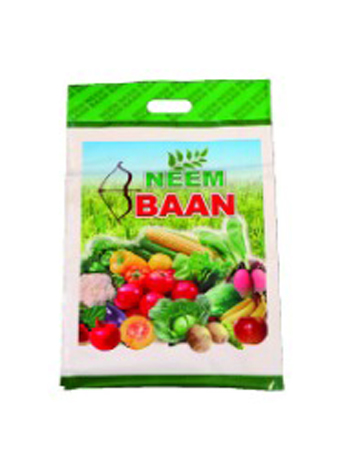Best Organic Fertilizers for Crops

Healthy soil is the foundation of successful farming, and choosing the best organic fertilizers for crops is one of the most effective ways to ensure long-term productivity. Unlike chemical inputs, organic fertilizers enrich the soil naturally, improve its structure, and supply essential nutrients without harming the environment. They not only nourish plants but also enhance soil health, making farming more sustainable and eco-friendly.
Farmers today are turning to organic fertilizers for crops such as compost, green manure, bio-fertilizers, and natural soil conditioners. These options provide a balanced supply of organic matter, promote microbial activity, and improve water retention in the soil. When crops receive nutrients in their most natural form, they develop stronger roots, better resistance to pests and diseases, and higher yields with improved quality.
Another advantage of using the best organic fertilizers for crops is their role in maintaining soil fertility for future planting seasons. Unlike synthetic alternatives that can degrade soil over time, organic solutions rebuild and preserve soil vitality. They work in harmony with nature by recycling plant and animal waste into valuable plant food.
In addition, organic fertilizers are cost-effective in the long run. While initial preparation may require effort, the benefits are lasting. Healthier soil means reduced dependence on chemical inputs, lower production costs, and crops that are safe for consumers. Farmers who use organic fertilizers for crops also gain an edge in meeting the growing market demand for chemical-free produce.
Choosing the right fertilizer
Choosing the right fertilizer is crucial for healthy and sustainable farming. The best organic fertilizers for crops are those that provide essential nutrients, improve soil fertility, and enhance plant growth naturally. Unlike synthetic fertilizers, they work in harmony with the soil ecosystem, ensuring long-term productivity. Here are some of the most effective options:
- Compost Manure
Compost is one of the most widely used organic fertilizers for crops. It is made by decomposing organic matter such as crop residues, kitchen waste, and animal dung. Rich in nutrients and beneficial microbes, compost improves soil structure, increases water retention, and boosts root development. - Green Manure
Green manure involves growing specific plants like legumes, clover, or sunhemp and then plowing them back into the soil. This practice naturally enriches the soil with nitrogen, adds organic matter, and improves soil aeration. It is especially useful for maintaining soil fertility between cropping seasons. - Vermicompost
Produced by earthworms breaking down organic waste, vermicompost is a highly nutrient-rich fertilizer. It contains plant-available nitrogen, phosphorus, potassium, and growth-promoting enzymes. Farmers prefer vermicompost for its quick results and its ability to enhance soil microbial activity. - Bone Meal
Bone meal, made from crushed animal bones, is a slow-release organic fertilizer high in phosphorus and calcium. It supports strong root development and flowering, making it one of the best organic fertilizers for crops like vegetables, fruits, and flowers. - Fish Emulsion
Fish emulsion is a liquid organic fertilizer derived from fish byproducts. It is packed with nitrogen and trace minerals that promote leafy growth and improve overall plant health. It works quickly and is especially effective for vegetables and leafy greens. - Bio-Fertilizers
Bio-fertilizers such as Rhizobium, Azotobacter, and Azospirillum are living microorganisms that improve nutrient availability in the soil. They enhance nitrogen fixation, phosphorus solubilization, and overall soil fertility, making them excellent for cereals, legumes, and pulses. - Farmyard Manure (FYM)
Farmyard manure, composed of cow dung, urine, and farm waste, is a traditional yet highly effective organic fertilizer. It increases soil fertility, improves moisture retention, and provides a balanced nutrient supply for crops.
By incorporating these best organic fertilizers for crops, farmers can achieve higher yields, healthier plants, and long-term soil sustainability without relying on harmful chemicals.
Conclusion
The shift toward sustainable farming highlights the importance of choosing the best organic fertilizers for crops. Unlike chemical alternatives, organic fertilizers not only supply vital nutrients but also enrich the soil, enhance microbial activity, and improve long-term fertility. Options like compost manure, green manure, vermicompost, bone meal, fish emulsion, bio-fertilizers, and farmyard manure are time-tested solutions that promote healthier plants and higher yields without harming the environment.
By adopting these natural inputs, farmers can achieve balanced crop nutrition, better resistance against pests and diseases, and improved produce quality. Moreover, organic practices reduce dependency on costly chemicals, conserve resources, and ensure soil health for future generations.
Ultimately, using the best organic fertilizers for crops is not just a farming decision—it is a step toward sustainable agriculture, environmental responsibility, and profitable farming that meets the growing demand for chemical-free food.
Ready to boost your farm’s productivity
boost your farm’s productivity with the best organic fertilizers for crops Choose trusted solutions from Indochem Agrovet – your partner in sustainable farming. Our premium products like Fortis, Bhupushti, Borca, Oreo, and Natura Power are designed to enrich soil health, enhance crop yield, and promote eco-friendly agriculture.
Call us today at 83369-77770 to know more, or visit indochemagrovet.in for details.
Mumbai Address:
Parewala House No.4 Vakola,
Santacruz (East), Mumbai 400055
Let’s grow healthier, greener, and more profitable farms together!

